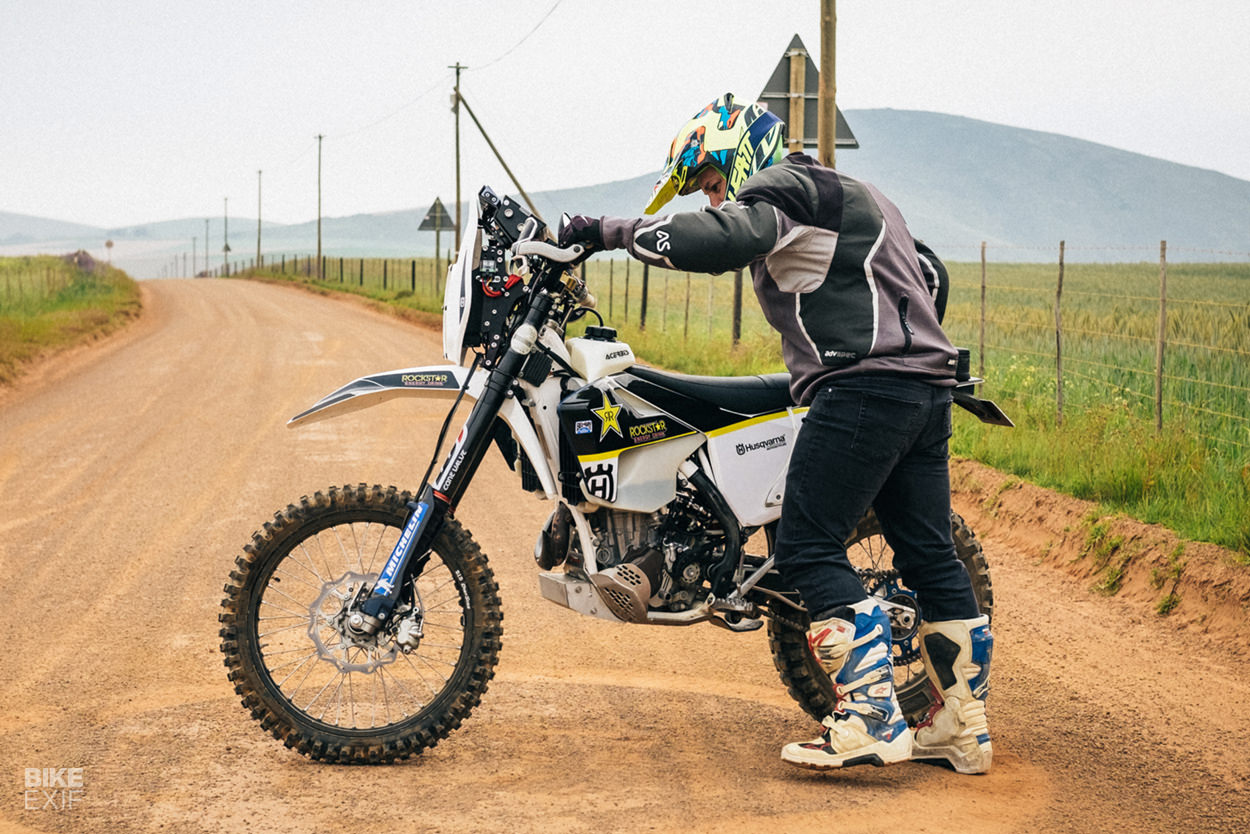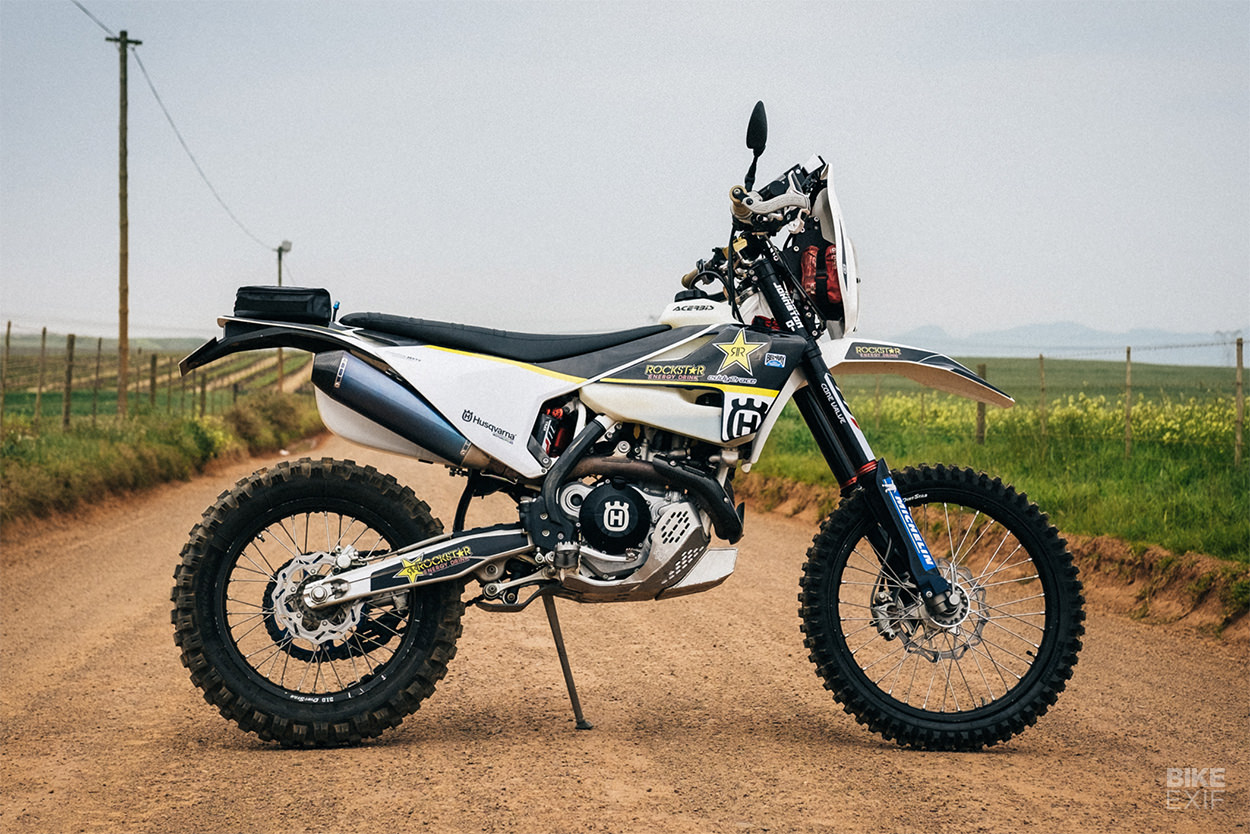
This website is fueled by our fascination with beautifully crafted motorcycles, and the world around them. That usually keeps our focus on the new wave custom space, but it doesn’t mean we’re oblivious to the motorcycle industry at large.
So when an EXIF-featured builder decided to build something we’ve never shown before—a race-ready rally machine—we were extremely curious. After all, rally bikes are technically custom dirt bikes that require a high level of skill to construct. (And they look really cool too.)
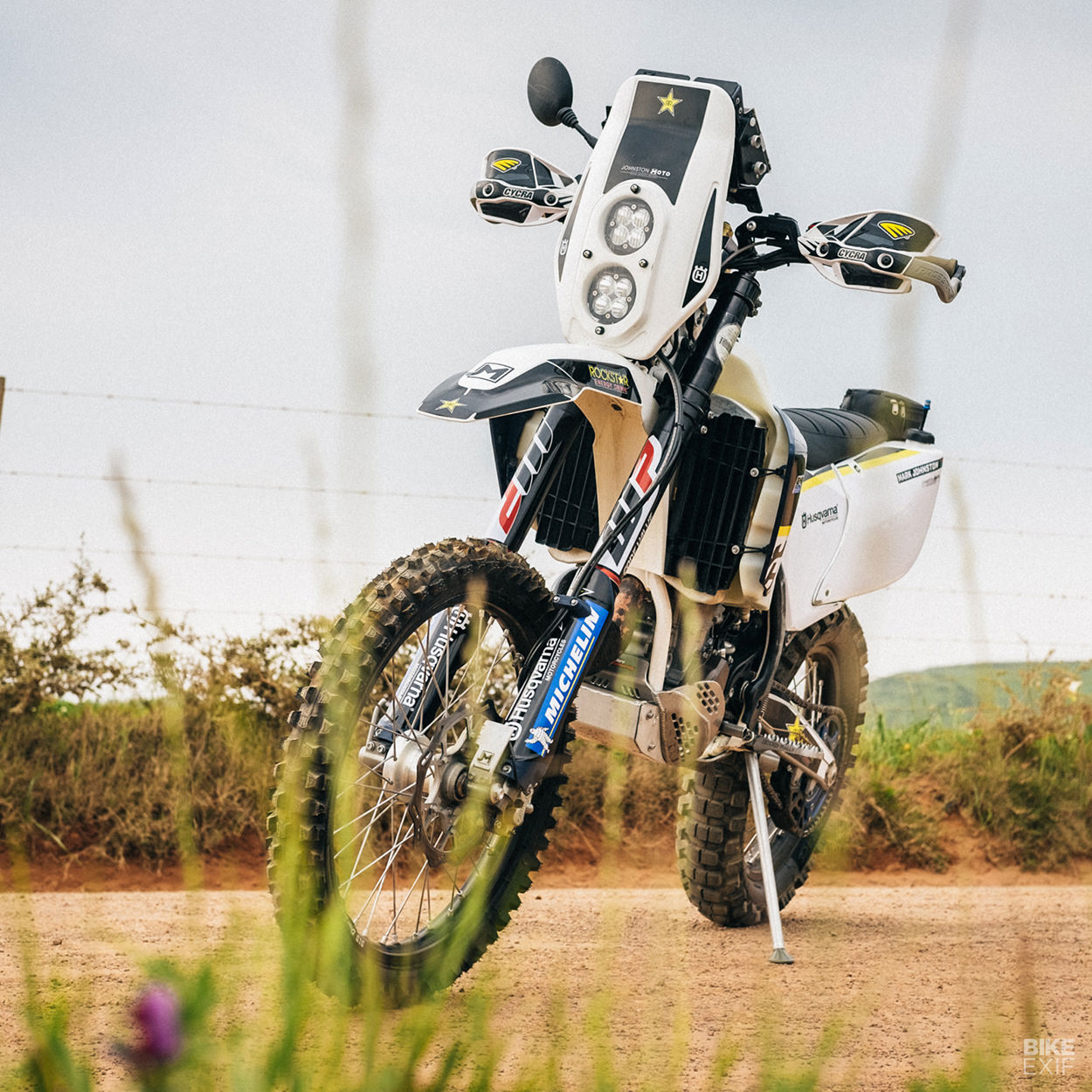
This purpose-built Husqvarna FE 501 rally racer belongs to Mark Johnston of Johnston Moto. He works out of a home workshop in Cape Town, South Africa, where he built his BMW R100RT cafe racer and R80G/S Paris Dakar restomod.
I know Mark personally, and can attest to two things: his workshop is obsessively well organized, and he does nothing in half measures. So when he decided to go rally racing, he also decided to do it properly.
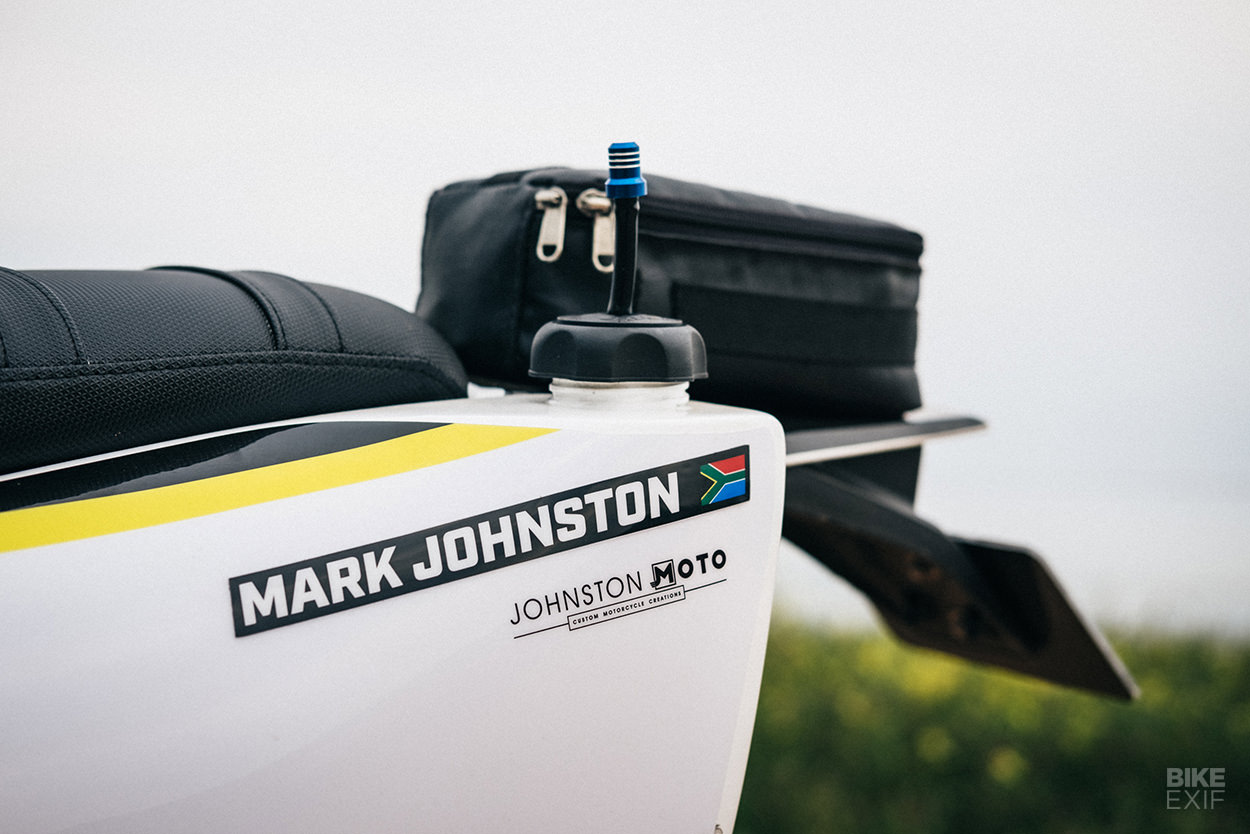
“Most of it is driven by requirements,” he says. “For example, you have to have navigation, and be able to ride a certain distance.”
“I chose the 501 because I like the Husqvarna brand, and the motor characteristics suit me better than the 450. The 501 has more low down grunt and doesn’t need to be revved as hard.”
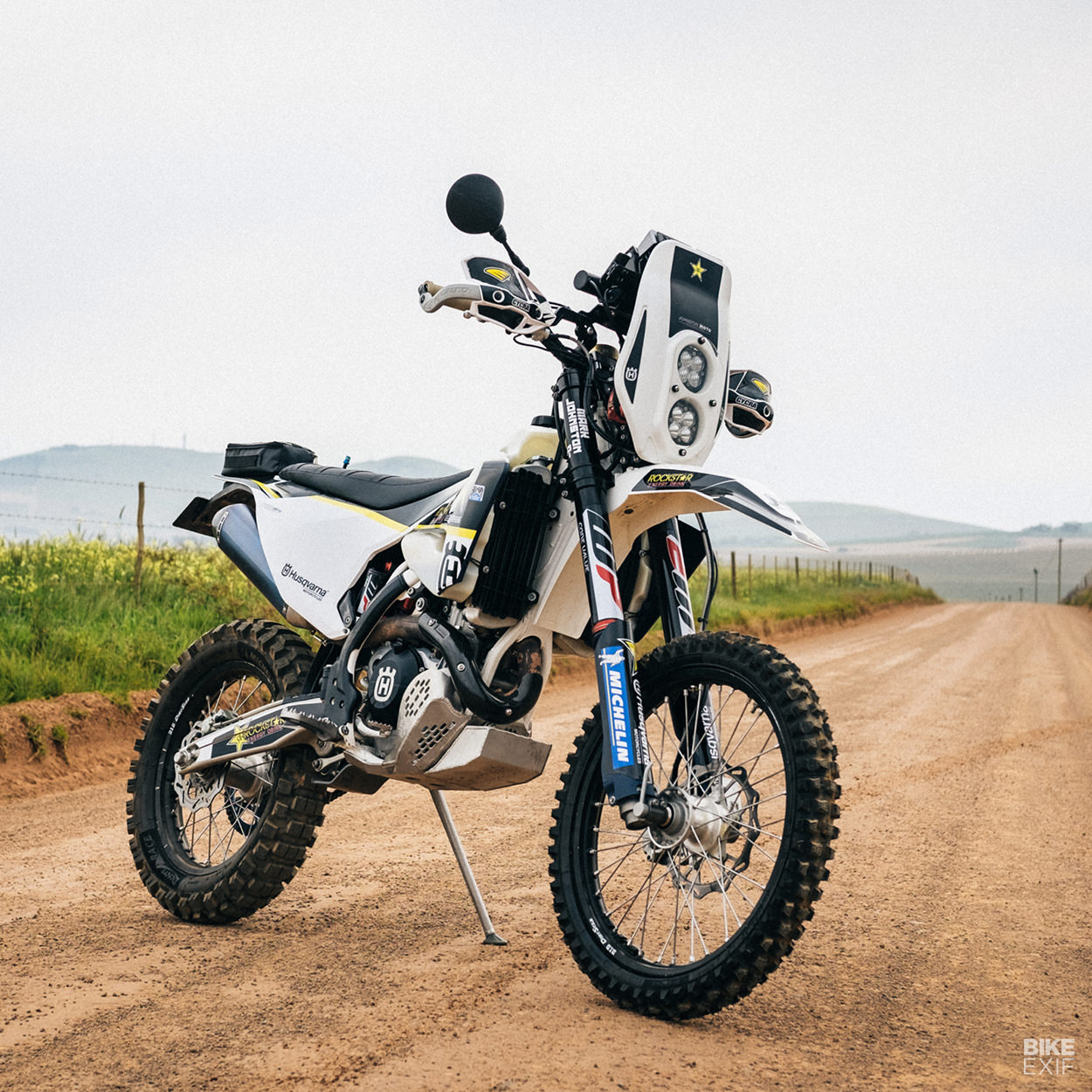
“I picked up a secondhand 2017 FE 501 with 40 hours on the clock. I also bought another 501, purely to take with me for spares. It makes it easier than having to buy individual spares, and at least this way I have spares of everything.”
Even though the FE 501 is a great performer out the box, suspension upgrades were high on Mark’s list. So he installed a popular WP Suspension combo: Cone Valve forks, with a Trax rear shock. “In my opinion, suspension is one of the first things you should upgrade on your bike,” he says.
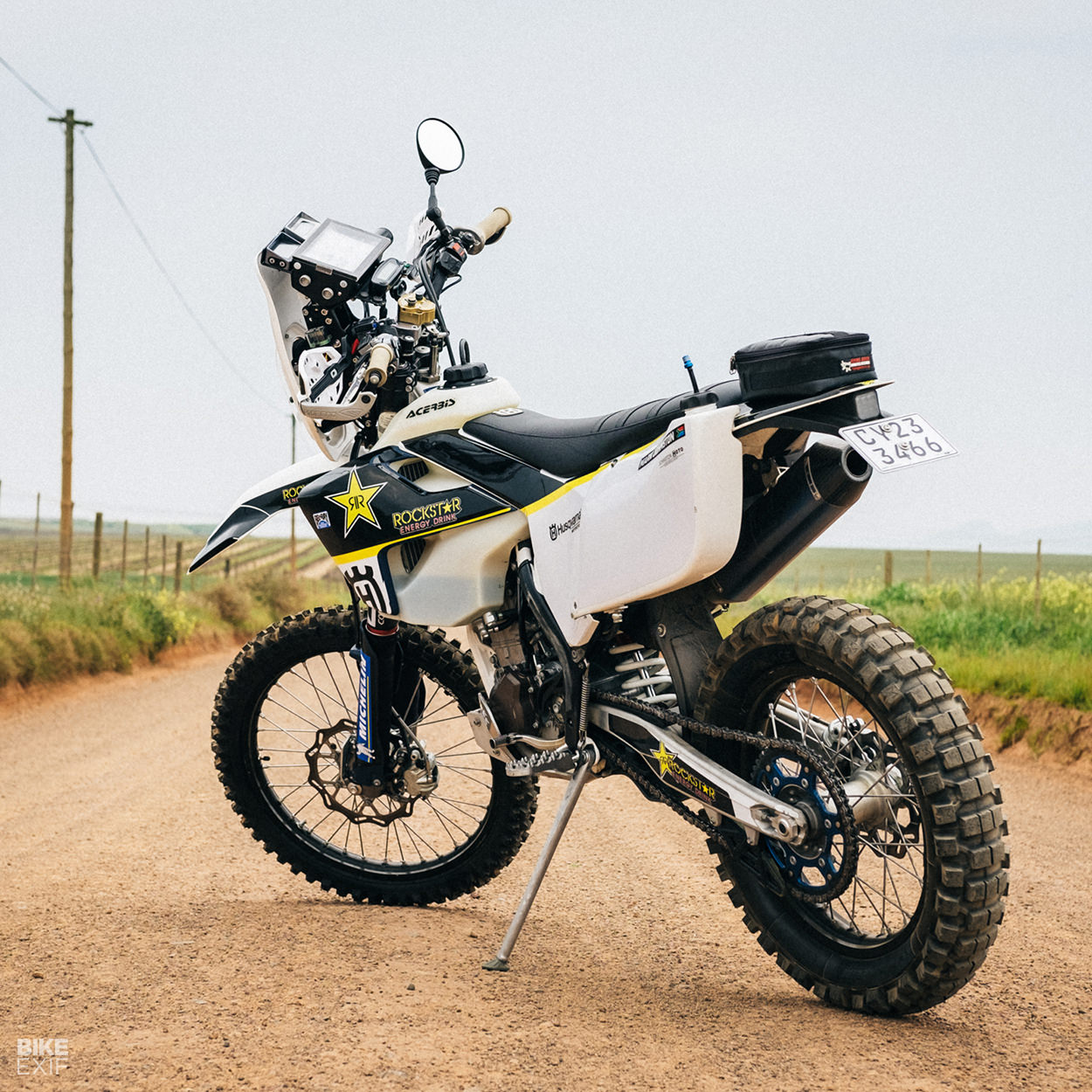
The Husqvarna’s OEM wheels now run Michelin Desert Race tires, with Michelin BIB mousses (a firm favorite among Dakar racers). Sprocket ratios vary; 14/50 for tighter courses, or 14/48 for wide-open tracks.
For fuel, Mark installed a 15-liter Acerbis tank up front, and a 5-liter Rebel X tank at the back. The rear tank plumbs into the main tank via quick-release fuel connectors, making it easier to strip the bike down. There’s also a switch that controls which tank drains first.
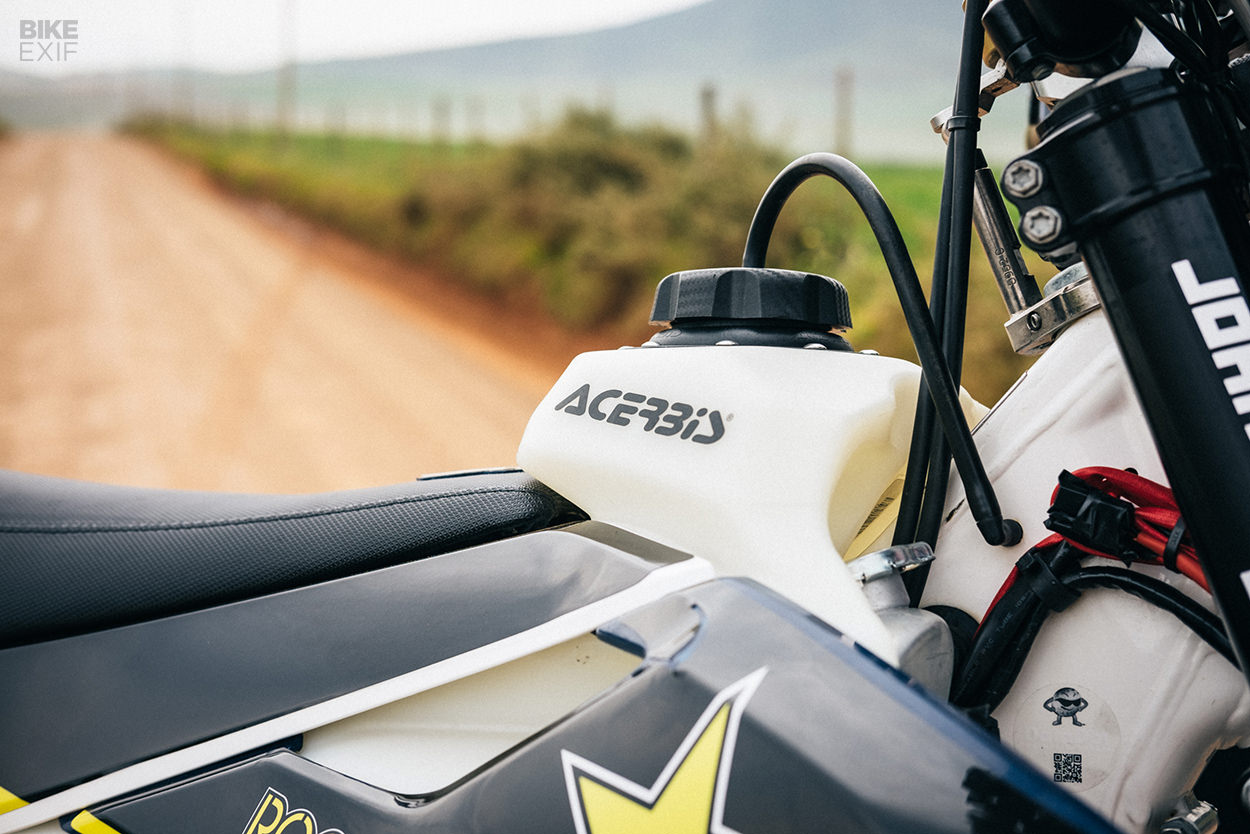
Next, it was time to build up another rally essential: the navigation tower. Mark started out with a Highway Dirt Bikes Rallye Lite tower—a direct bolt-on for the 501. “It’s much cheaper than your carbon fiber alternatives,” he says, “and is super well made.”
He then proceeded to mod a whole lot of things to get the configuration just right. The tower’s top mounting plate attaches below the handlebar risers, but ended up raising the bars too much. So Mark machined it down, then machined an additional support to compensate for the material he removed.
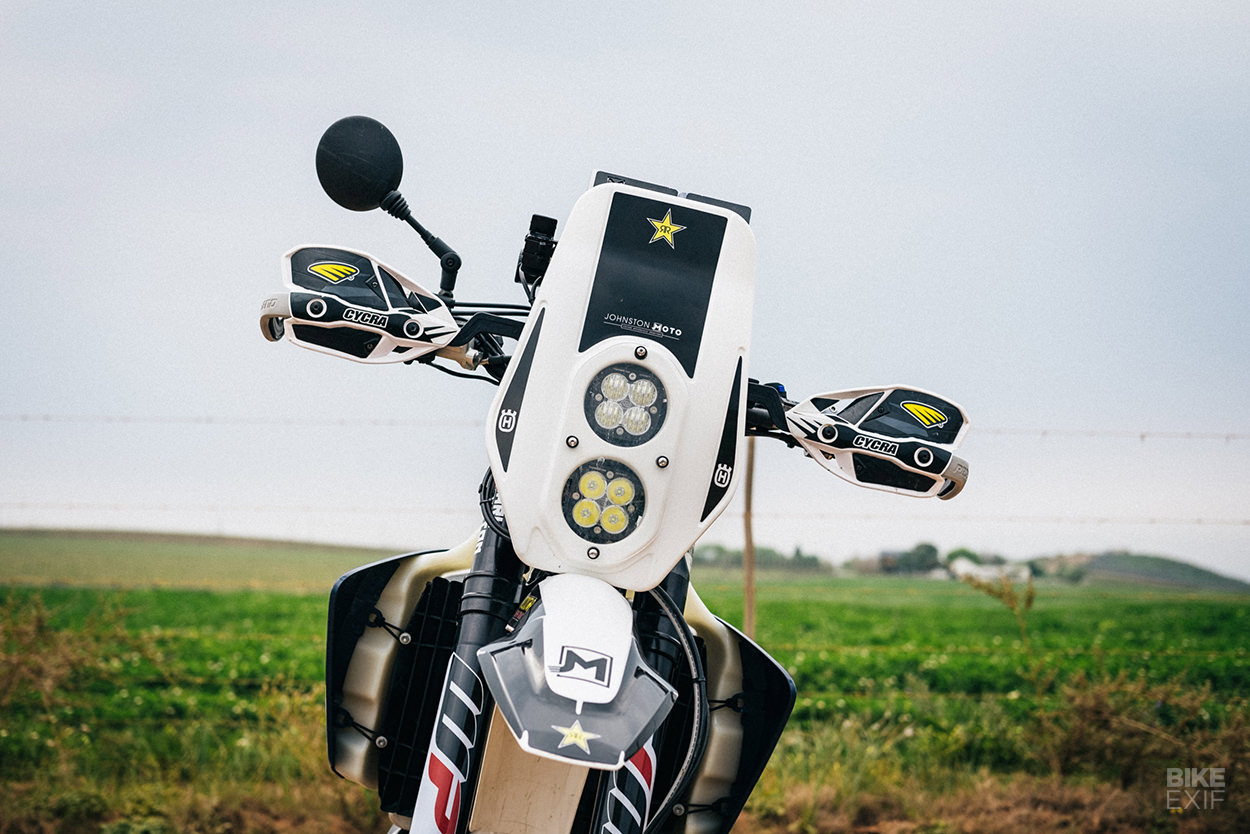
Poking out the front are a pair of ultra-bright Baja Designs LED headlights, and behind the fairing, you’ll find a smorgasbord of gadgetry and custom wiring.
Mark designed and built his own roadbook mount, so that he could accommodate the 501’s stock clocks and indicator lights. It also included a spot to attach his Garmin Etrex GPS to. The actual roadbook unit is from Migtec, and the trip meter and cap unit are from RNS.
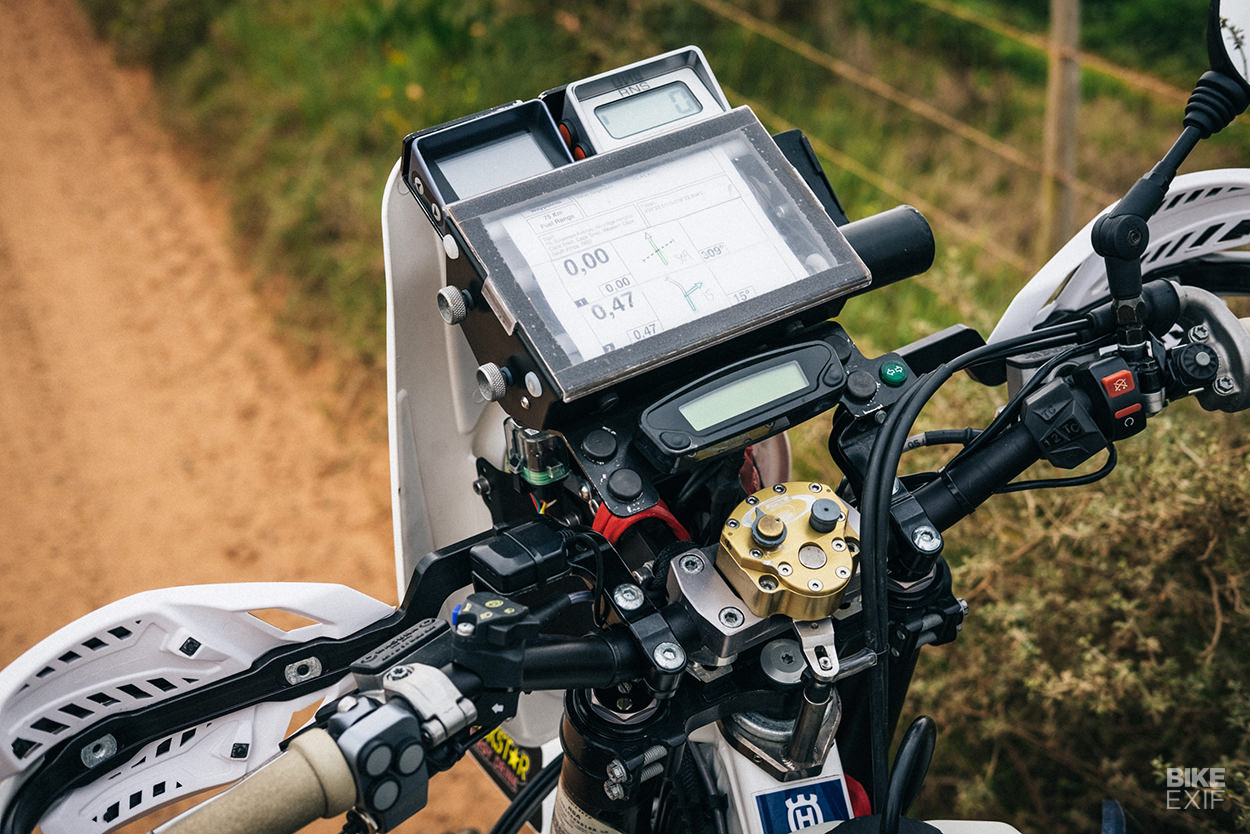
“The unit on the left gives me my trip distance and cap (compass) heading,” he explains. “The unit on the right, my speed. Then I have my 501 original clock as backup speed and trip meters.”
Everything’s controlled from a switch cluster on the left side of the bars. The system called for an extra pickup on the front wheel too, so there’s a custom bracket for that, designed to shield it from renegade stones.
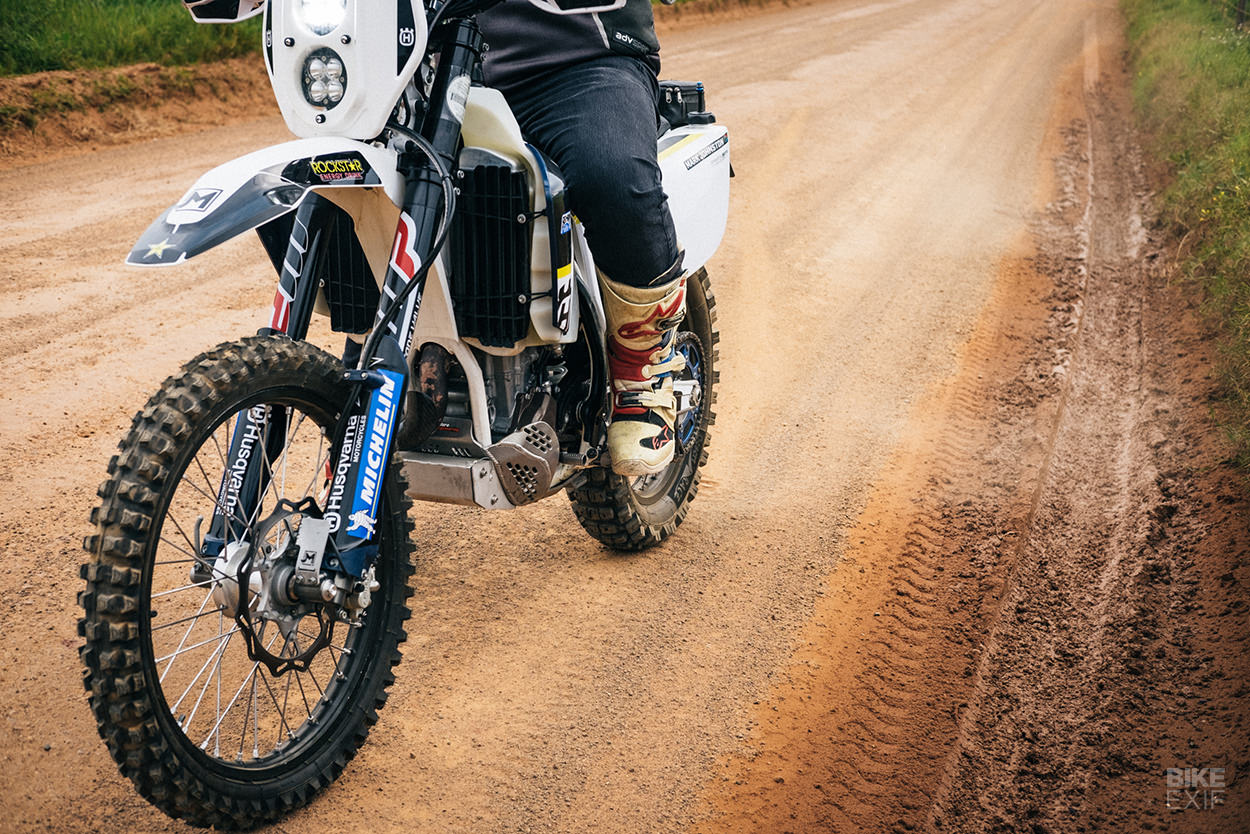
A ton of effort went into the nav equipment’s custom loom. Everything runs off a relay, so the bike’s main switch turns the nav kit on and off too. Mark went as far as to set up a custom fuse arrangement with a waterproof fuse box, and to double insulate all the wiring.
He even set up home-made spacers made from cable ties and tubing, to keep wires from rubbing against each other.
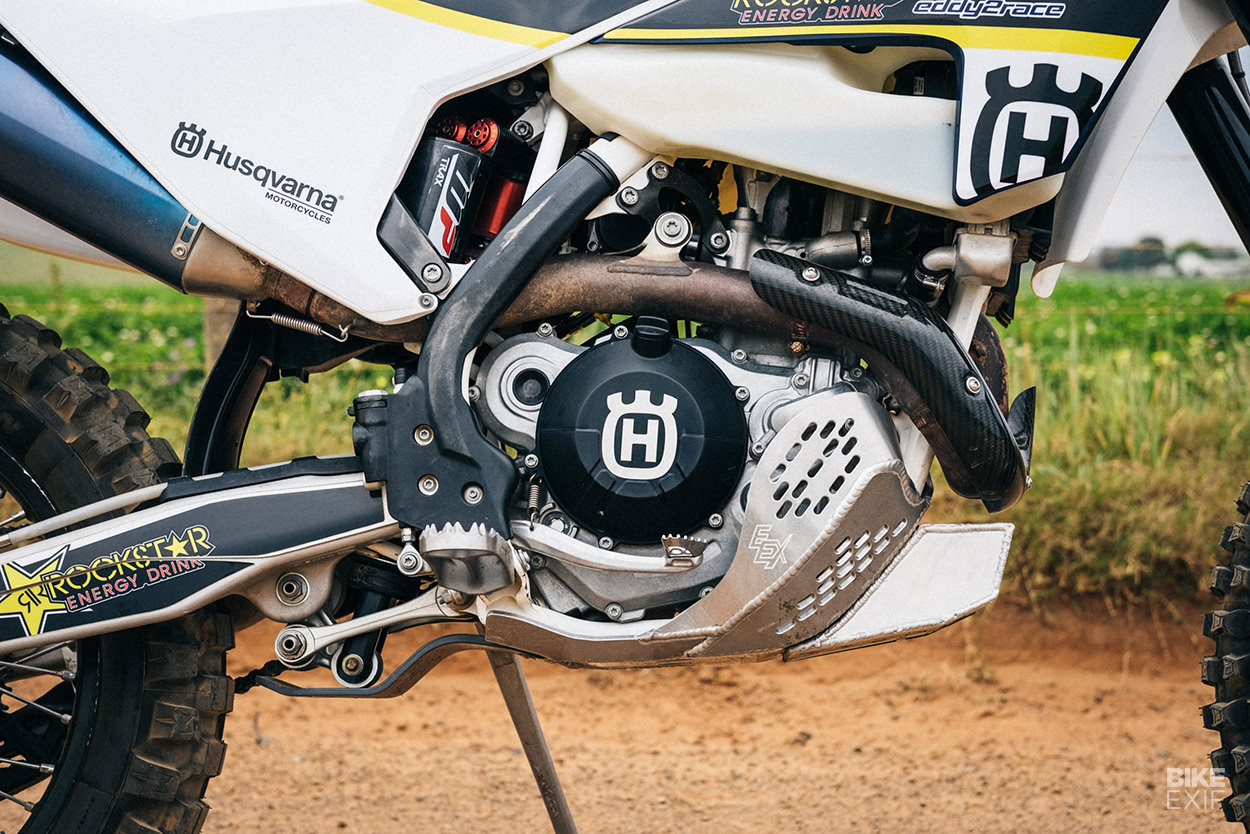
Another key piece is the modified Enduro Engineering bash plate. Not content with the original part, Mark reshaped it on the left so that he could swap oil filters without having to remove it. And he fabricated a tool box that attaches to the front of it, allowing him to carry some essential tools while keeping the weight low.
A few tried and true off-the-shelf parts round out the build, like Cycra hand guards, a Carbonteck exhaust header guard, and IMS foot pegs. Mark also reshaped the seat with extra foam, making it wider at the back, and had it recovered in a special gripper fabric.
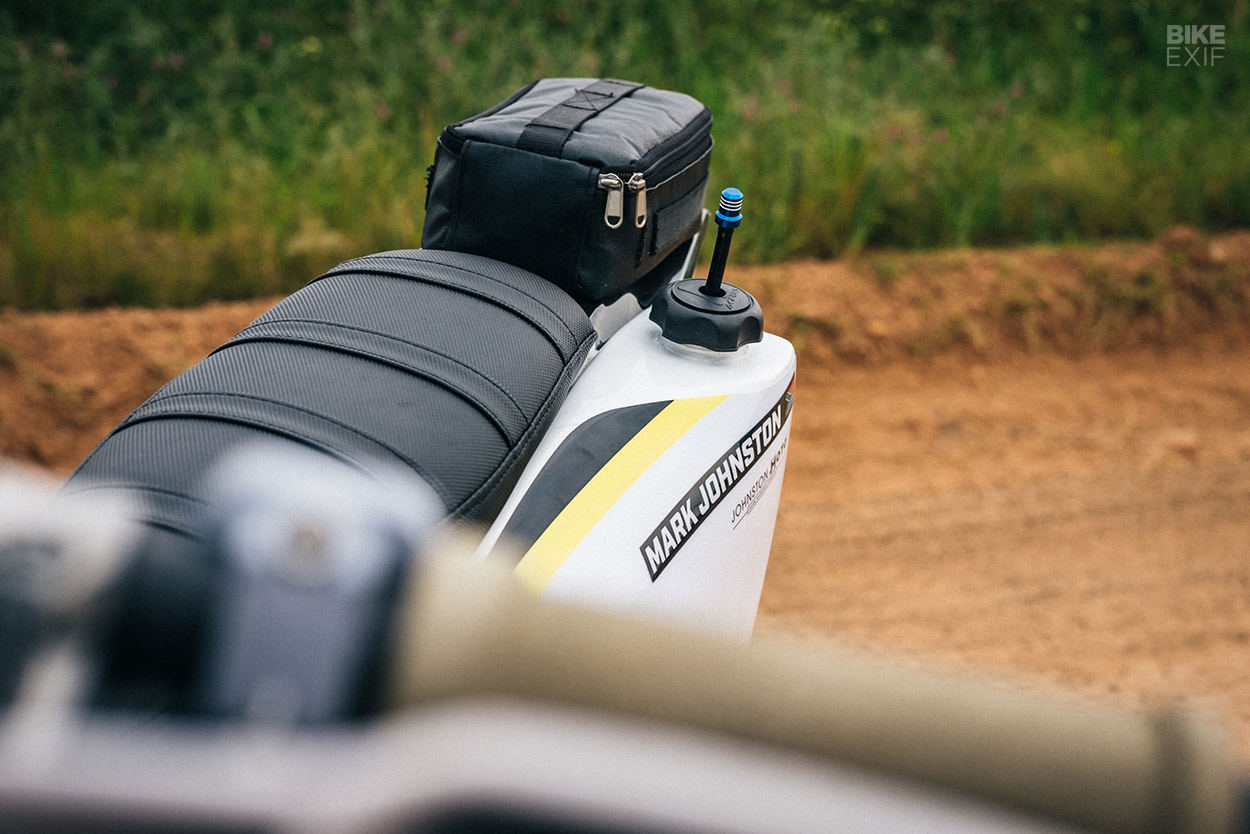
Mark’s FE 501 sure looks race ready, but is it? Yes indeed—Mark’s already shaken it down at the local Tankwa Rally, where he placed fourth in his class. (There were 15 competitors in his class, eight of whom didn’t finish.)
That was Mark’s first ever rally race. And the first time he’s raced a motorcycle in any discipline. He’s now in the thick of wrapping up an extensive service before his next outing: the 3,600 kilometer Kalahari Rally, which kicks off in a few days.
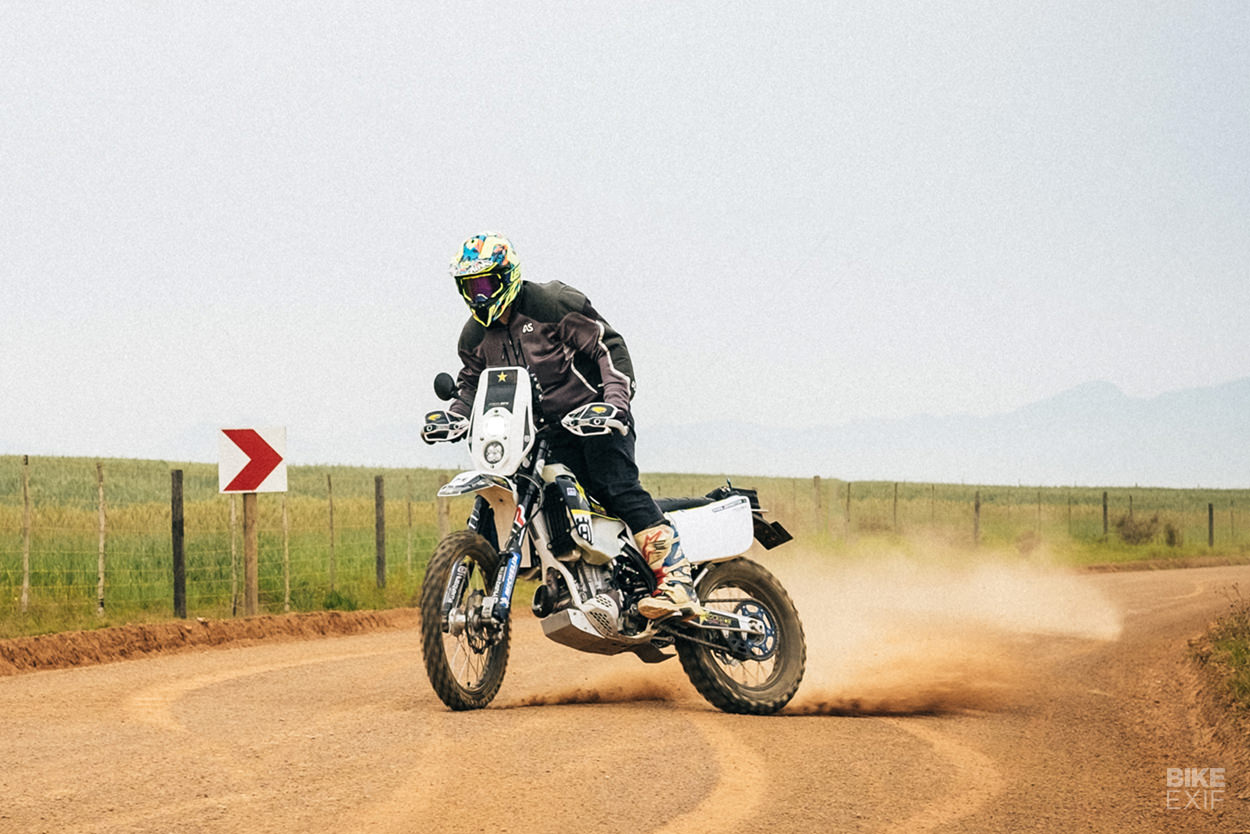
As for his aspirations beyond that, he’s taking it one event at a time; “I want to see how this goes. Although I was swearing away in my helmet during the Tankwa, I quite enjoyed it.”
“If it’s the same for Kalahari, which is much longer, then I’ll look to do an international event, hopefully.”
Johnston Moto’s 501 Rally might not be a typical custom…but it sure is interesting, and damn nice to look at. Who else feels an urge to go racing?
Johnston Moto Facebook | Instagram | Images by Wes Reyneke
